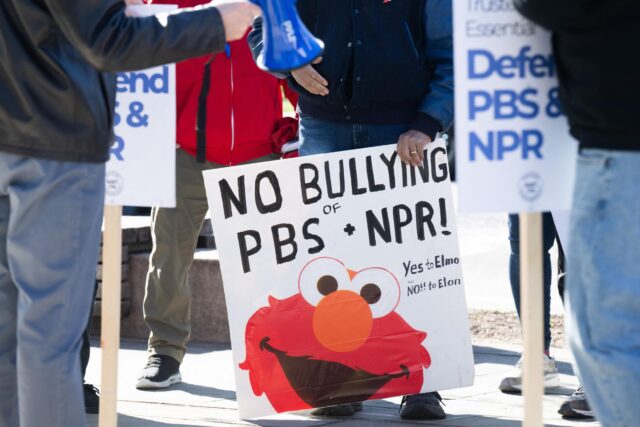The US Senate voted to rescind two years' worth of funding from the Corporation for Public Broadcasting (CPB), delivering a blow to public radio and television stations around the country. The CPB is a publicly funded nonprofit corporation that supports NPR and PBS stations.
The 51-48 vote today on President Trump's rescissions package would eliminate $1.1 billion that was allocated to public broadcasting for fiscal years 2026 and 2027. All 51 yes votes came from Republicans, while Sens. Susan Collins (R-Maine) and Lisa Murkowski (R-Alaska) voted against. The $1.1 billion includes $60 million for "costs associated with replacing and upgrading the public broadcasting interconnection system" and other back-end infrastructure for public media.
"Without federal funding, many local public radio and television stations will be forced to shut down. Parents will have fewer high quality learning resources available for their children," CPB CEO Patricia Harrison said. "Millions of Americans will have less trustworthy information about their communities, states, country, and world with which to make decisions about the quality of their lives. Cutting federal funding could also put Americans at risk of losing national and local emergency alerts that serve as a lifeline to many Americans in times of severe need."
The Rescissions Act also targets the State Department, the US Agency for International Development (USAID), and other agencies, rescinding $9.4 billion overall. "The senate's approval of the cuts tees up a final showdown in the House, which approved an earlier version last month," NPR wrote.
An amendment by Sen. Tammy Baldwin (D-Wis.) to preserve public broadcasting funding was rejected in a 52-47 vote. Murkowski, who expressed concern about emergency alerts during disasters, was the only Republican to vote for that amendment. Murkowski separately proposed an amendment "to restore CPB funding while barring any federal money from going to NPR," but it was defeated, NPR wrote.



 Loading comments...
Loading comments...
